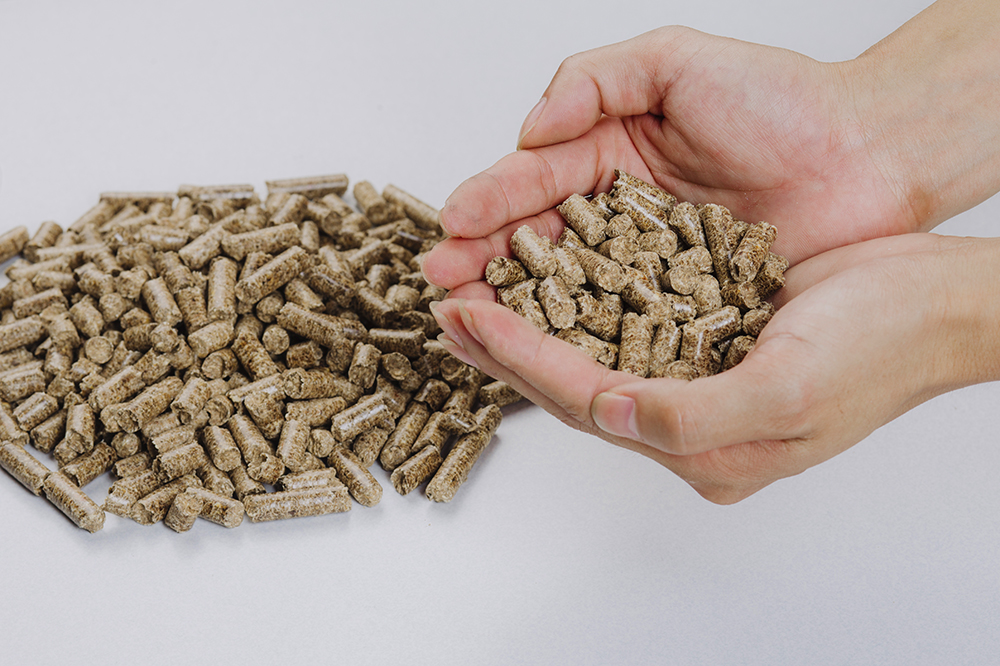at the largest facility in Vietnam
We established Biomass Fuel Vietnam Co., Ltd BMFV as part of the Biomass Fuel Group.
In 2019, our first plant, the Vinh plant in Nghe An Province, Vietnam, was the first pellet plant to receive Fit certification from the Japan Gas Appliance Inspection Association (JIA).
Our aim for the future is to establish an annual supply system of 500,000 to 600,000 tons by 2024. We are conducting business surveys at new locations for this purpose.
Advantages of our wood pellets
■ High quality
Our pellets meet the I2 standards and maintain a higher quality compared to both European and common Vietnamese pellets.

BFV: Survey conducted by Nippon Kaiji Kentei Kyokai (NKKK)
| BFV | I2 Standards*1 | |
|---|---|---|
| Bulk density (Kg/㎥) | 760 |
600 ≤ |
| Lower calorific value (MJ/kg) | 17.4 |
16.5 ≤ |
| Ash content (%) | 0.5 |
≤ 1.5 |
| Sodium + potassium (mg/kg)*2 | 1410 |
≤ 2000 |
| Powdering rate ≤ 3.15 mm (wt%) | 0.1 |
≤ 5 |
| Mechanical durability (wt%) | 98.5 |
97 ≤ |
| Particle size distribution < 1.00 mm (wt%) | 80 |
50 < |
*1 Conforms to the Industrial 2 industrial pellet standards ISO17225-2:2014
*2 For conventional products containing only sodium + potassium
■ Stable supply
Our raw materials are sourced from sustainably managed forests. Therefore, we are able to provide a long-term stable fuel supply without relying on residues or by-products of other agricultural or timber products.

Procurement Policy for Imported Wood Based Biomass
The Biomass Fuel Group procures imported wood based biomass fuels and raw materials in consideration of the forest environment of afforested land and local communities.
We have enacted our Procurement Policy to ensure appropriate supply chain management to aim for responsible procurement and to enforce due diligence to avoid importing highly illegal forms of wood based biomass fuels.
| Procurement Policy |
|---|
|
(1) Legitimacy We will strive to confirm the legitimacy and traceability of wood biomass. |
|
(2) Sustainability We will use planted trees appropriately managed in the country of production. |
|
(3) Promoting recycling We will reuse forest land remnants and timber waste produced at the production site. |
| Action Plan |
|---|
|
(1) Supply chain management We will acquire information through visits to forests and production plants. |
|
(2) Risk assessment We will conduct risk assessment of the wood biomass to be procured. |
|
(3) Stakeholder dialogue We will work with third party environmental organizations, etc., to constantly keep up to date with the latest information on production areas. |
|
(4) Monitoring and risk reduction We will endeavor to reduce risks and conduct internal audits to ensure due diligence is appropriately applied. |
|
(5) Disclosure of information We will provide the Biomass Fuel Group timber procurement initiatives to external entities. |





